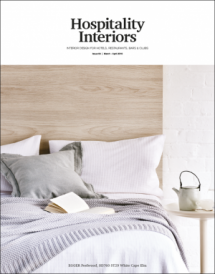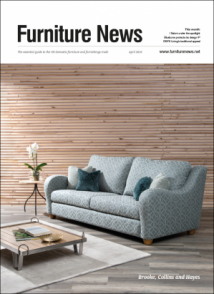There is growing demand for certified products, alongside documents based on objective and reliable evidence which states that what a manufacturer declares about a product’s performance, materials and safety is true, states Catas.
This is a request that is growing in volume from consumers, who are increasingly aware of the need for clarity regarding the values of the goods they are buying – in terms of quality, safety, health (for example, formaldehyde emissions), and even from a sustainability point of view.
With regards to product certifications, there is an increasing interest from furniture producers, too, which understand how a product with characteristics and quality certified by an independent and recognised third-party body can be more attractive to consumers.
In addition, product certification is considered by companies as an effective and valuable tool for monitoring the whole production process – not to mention being increasingly considered relevant in the control processes of some of the global retailers operating in the furniture sector, which use them as a qualification tool for supplier selection, states Catas.
For over 25 years, Catas has been issuing product certifications on the basis of international standards and specific procedures and rules ad-hoc, developed to evaluate and check the conformity of many products over time – from low-formaldehyde emission panels to coating systems for indoor and outdoor use, and from glulam beams for windows to furniture products.
Catas not only deals with certification, but also, and above all, with monitoring – through inspections and laboratory tests – so that the characteristics that led to the approval of a product are kept constant.
Recently, two new certification schemes have been developed and activated in line with the CQA (Catas Quality Award) – surfaces for playgrounds, and the coatings for healthcare and medical practice furniture.

Made In Italy by Catas
There is a specific topic in the sector that is worth underlining, states Catas – the ‘Italian origin of furniture’ certification, a scheme which, for a couple of years, from the entry into force of the related reference standard, makes the definition ‘Made In Italy’ something more than a slogan, as it defines the criteria to allow a sofa, a wardrobe or chair to provide evidence of not only being ‘born in Italy’ but also in meeting a set of requirements that certify its quality and performance.
The certification, which is seeing increasingly deployment – especially in the office furniture and kitchen sectors – is based on some fundamental pillars: first of all, the national standard UNI 11674, which prescribes both the process and product requirements, making – in fact – the origin and the Italian qualities of a product objective and verifiable; and the rigorous technical rules which have been implemented, including on-site inspections, in order to verify if the significant production phases are actually carried out in Italy, plus laboratory tests to assess the technical performance of the finished product.
“It is a certification that is of great interest in the world,” comments Catas’ MD, Franco Bulian, “as finally, talking about an Italian product as a synonym for beauty and quality is no longer just a topic of conversation, but something defined, proved, certificated.
“We are faced with a new strategic tool to further increase the success of Made In Italy in the world – a heritage of great value, on which to work always with the utmost seriousness and rigour so that it is always an absolute, objective and indisputable value.”










